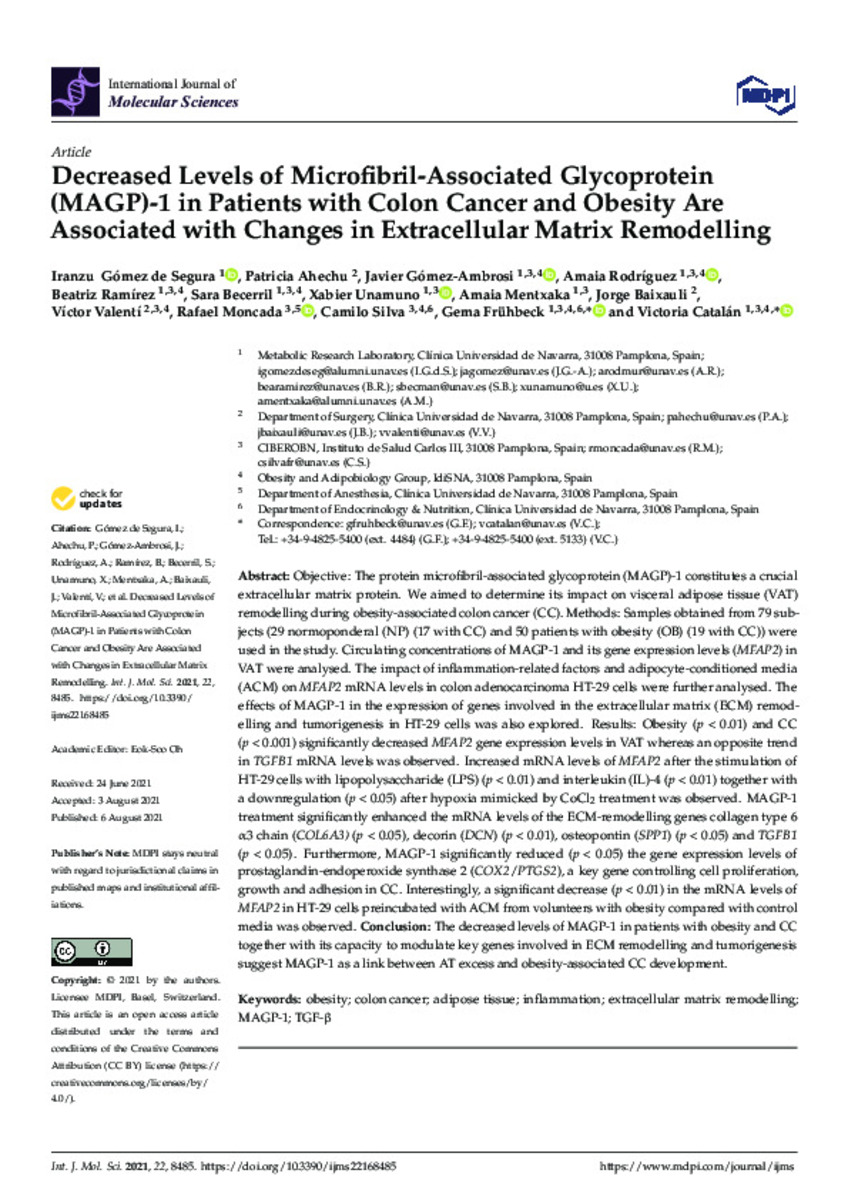Decreased Levels of Microfibril-Associated Glycoprotein (MAGP)-1 in Patients with Colon Cancer and Obesity Are Associated with Changes in Extracellular Matrix Remodelling
Palabras clave :
Obesity
Colon cancer
Adipose tissue
Inflammation
Extracellular matrix remodelling
Fecha de publicación :
2021
Nota:
This article is an open access article
distributed under the terms and
conditions of the Creative Commons
Attribution (CC BY) license (https://
creativecommons.org/licenses/by/
4.0/).
Cita:
Gómez de Segura, I.; Ahechu-Garayoa, P. (Patricia); Gómez-Ambrosi, J. (Javier); et al. "Decreased Levels of Microfibril-Associated Glycoprotein (MAGP)-1 in Patients with Colon Cancer and Obesity Are Associated with Changes in Extracellular Matrix Remodelling". International Journal of Molecular Sciences. 22 (16), 2021, 8485
Aparece en las colecciones:
Estadísticas e impacto
0 citas en

0 citas en

Los ítems de Dadun están protegidos por copyright, con todos los derechos reservados, a menos que se indique lo contrario.







